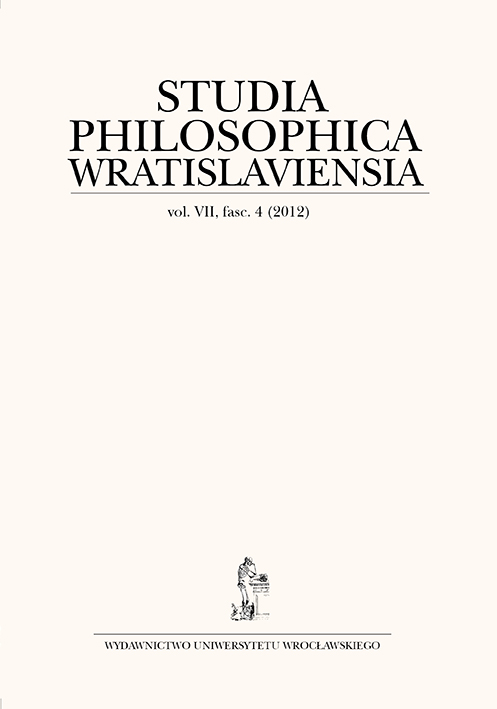

Artykuły

The article focuses primarily on the examination of the hypothesis stating the close relation between C.S. Peirce’s thought and analytic philosophy in its early period, this is in the first half of the 20th century. The starting point for this task is E. Nagel’s paper Impressions and Appraisals of Analytic Philosophy in Europe 1936. Nagel painted a portrait of tendencies he had discovered in European philosophy during a one-year study in Europe, especially in philosophy professed at Cambridge, Vienna, Prague, Warsaw, and Lwów. He enumerated a few features characteristic — in his opinion — of “the men and these places”. These are very briefly speaking: respect to the knowledge acquired by special sciences and clarifying its meaning and implications as the main task of philosophy, ethical and political neutrality, and liability to a common-sense naturalism. The author of this article finds the similar traces and inclinations in Peirce’s papers, though notices also some quite important differences. The final answer to the title question is generally positive, however the differences e.g. much less radical empiricism than in Vienna School make the relation between Peirce’s thought and analytic philosophy more subtle and complex.